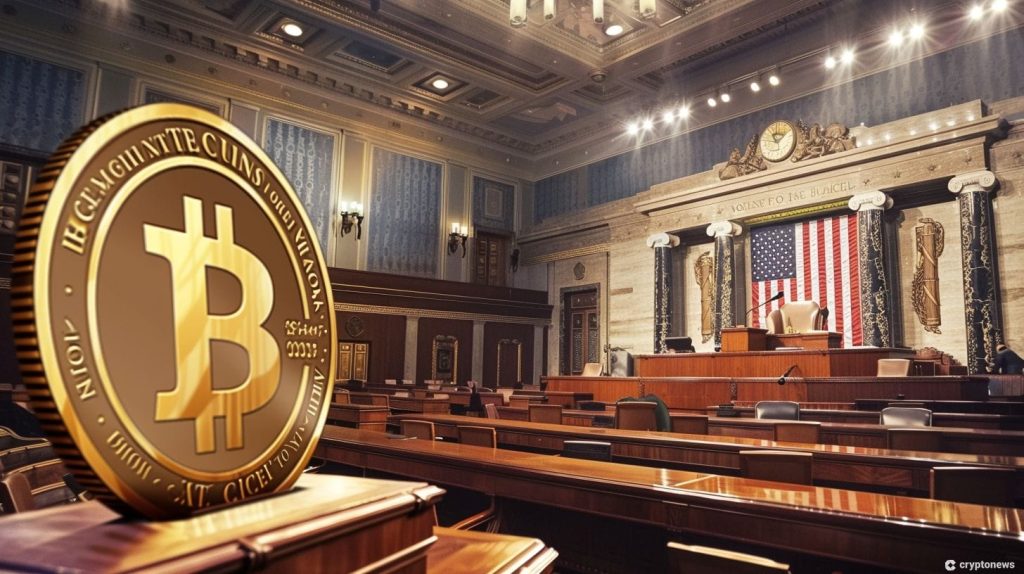Former U.S. Treasury official Graham Steele recently criticized support for the Financial Innovation and Technology for the 21st Century Act (FIT21) in a post on X. His comments were in response to a social media petition by Digital Innovation For America (DIFA) supporting the bill, which claims that blockchain technology is the best way to fight against Big Tech. Steele pointed out that the crypto bill does not include any prohibition on Big Tech and instead creates a light-touch regulatory framework for cryptocurrency, mostly outside securities laws. This sparked some backlash from members of the crypto community who felt that traditional Big Tech companies, such as Amazon, Apple, and Meta, with their top-down structure, are different from the decentralized nature of blockchain.
Steele’s post came during a turbulent time for the FDIC, with Chair Martin Gruenberg resigning due to allegations of sexual harassment, discrimination, and misconduct. The White House Deputy Press Secretary, Sam Michael, announced that President Biden would announce Gruenberg’s replacement soon, with reports suggesting that Steele may be a candidate for the position. The FDIC has previously warned about the potential risks associated with crypto-assets for banking organizations. Meanwhile, the House is preparing for a vote on FIT21, scheduled for Wednesday. The bill, supported by industry leaders in the crypto space, aims to establish a regulatory framework that provides increased freedom for digital asset operators in the United States.
The backlash against Steele’s comments on the DIFA FIT21 petition highlighted a divide within the crypto community regarding the use of blockchain technology to combat Big Tech. Some users argued that blockchain networks offer more benefits for consumers than traditional corporate networks and are seen as a way to fight back against Big Tech. Others criticized Steele for making the issue partisan and alienating younger voters who support decentralized crypto. The debate underscores the complexity and nuances surrounding the intersection of technology, regulation, and industry dynamics in the cryptocurrency space.
The involvement of prominent figures like Steele and the impending vote on FIT21 reflect the growing importance of regulatory frameworks for the cryptocurrency industry. With increasing adoption and interest in digital assets, policymakers are grappling with how to balance innovation and consumer protection in this rapidly evolving space. The House vote on FIT21 will be a crucial moment in shaping the future of crypto regulation in the U.S. and could have far-reaching implications for digital asset operators and investors.
As stakeholders continue to navigate the complexities of cryptocurrency regulation, the debate over FIT21 and the role of blockchain technology in combating Big Tech serves as a microcosm of the broader challenges facing the industry. The need for clear and effective regulatory frameworks that address the unique characteristics of cryptocurrencies while fostering innovation and protecting consumers is evident. The outcome of the House vote on FIT21 will be watched closely by industry participants, policymakers, and the public as a signal of the trajectory of cryptocurrency regulation in the United States.


